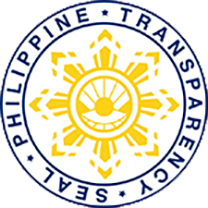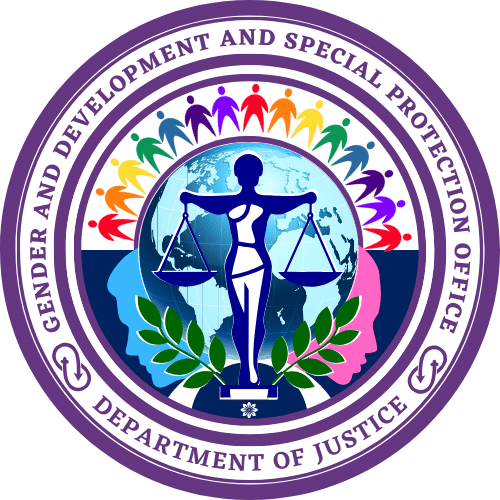Manila Dialogue: Making Real the Possibility
of a World Free of Trafficking
Philippine International Convention Center
06 December 2018
by
Hon. Menardo I. Guevarra
Justice Secretary
The British were the first to outlaw the trade of humans by humans over two centuries ago.
But even after such advancement in the law, the inhuman trade of humans persisted.
Economies and civilizations were built around this trade.
It is no wonder that slavery has broken the very fabric of nations – from nations in which the enslaved were forcibly taken, to those in which they have been forcibly traded and brought.
It has destroyed families and communities, and brought war to even the mightiest of economies.
The inherent injustice in building fortunes from the misfortune of some presents one of the strongest compulsion for the abolition of slavery, and the readiness of peoples to wage war in its name.
Centuries after, the universal condemnation and prohibition against slavery have become defining features of the laws that guide nations, and a manifestation of the advance of human civilization.
This advance in our civilization and in our laws creates the illusion that slavery has ended.
But all of us know this to be mere delusion.
The institutions of enslavement from centuries ago may have crumbled under the weight of the moral and legal indignation leveled against their preservation.
But those who shamelessly think their self-interest superior over the dignity of others continuously find ways to undermine the legal institutions designed to combat the trade of our fellow human beings.
Today, men, women and children are still traded, forced into labor and to live under conditions that strip them of their human dignity.
They are trafficked globally.
According to the 2016 report of the United Nations Office on Drugs and Crime, victims of human trafficking can be found in over a hundred countries.
Meanwhile, the International Labour Organization has reported that in the same year, roughly twenty one (21) million people around the world have been victims of forced labour and extreme exploitation.
“The Manila Dialogue is a call for
international cooperation, that those who
seek to profit from the trafficking of our
fellow human beings may no longer exploit
the present vulnerabilities in the legal and
enforcement systems of our nations.”
Annual profits from these activities are estimated to be $150 billion.
But the human cost upon which these profits rest is exponentially staggering.
There are peoples who – regardless of age, gender, ethnicity or nationality – are exploited, forced into prostitution, or whose organs are traded.
There are nameless bonded laborers kept in sweatshops to produce goods for distribution to global consumers.
There are families broken apart that others thousands of miles away may enjoy the service and comfort that money and affluence can afford.
The debasement of any human being – upon which slavery before was, and human trafficking today is, anchored – is too high a price to pay for any comfort, or benefit that may be derived from it.
No individual, community, or government that heralds respect for the fundamental equality of every human person can argue against this.
And it is from a deep understanding of this common principle that we gather today, in the fourth iteration of the Manila Dialogue.
The Manila Dialogue reminds the international community of the need for a collective and common response to human trafficking.
At a time when the network for the trafficking of persons has spanned the globe, approaches that are individualistic and segmented are proving ineffective.
Those who traffic our citizens – especially the most vulnerable members of our communities – most often have in their arsenal resources and technology far more advanced and sophisticated than some countries.
Behind them are countless people from around the world whose prurient and immoral demands and avarice provide stable financing for the trafficking of our citizens.
It is this advantage that allows traffickers to slip past the radar of many governments.
The Manila Dialogue is a call for international cooperation, that those who seek to profit from the trafficking of our fellow human beings may no longer exploit the present vulnerabilities in the legal and enforcement systems of our nations.
A recent triumph in our prosecution efforts underscores the effectiveness of international cooperation against the despicable crime of human trafficking.
This triumph started thousands of miles away, in France, where a French pedophile, upon arrest, confessed to abusing a nine year old Filipina child, as well as producing and distributing online sexually exploitative materials about her.
The confession led to the identification of a Filipino facilitator complicit in the trafficking and exploitation of the child.
This information was transmitted to the Philippines and Australia, and was subsequently corroborated by the Philippine National Police – Women and Children Protection Center.
INTERPOL, Australia’s Task Force ARGOS and the International Justice Mission joined hands to assist in case build-up, which led to the apprehension of the Filipino facilitator.
“For while in each case of trafficking the
worst in humanity is made manifest, a
triumph in just one case nevertheless
showcases the best in us.”
During trial, the Australian Federal Police waived diplomatic immunity and testified against the accused.
Four months after the trial and nine months after the rescue of the child, a conviction for qualified trafficking was handed down by our courts.
It is a victory claimed by one child, but made possible by individuals of many languages and nationalities, many of whom do not know each other, and by institutions that operate under distinct and most often different legal regimes, and under formidable challenges.
It is undoubtedly a resounding victory for humanity.
For while in each case of trafficking the worst in humanity is made manifest, a triumph in just one case nevertheless showcases the best in us.
Such a triumph affirms our capacity to go beyond our differences, and forge links necessary to correct an injustice.
And beyond restoring those who have been wronged, such a triumph gives us a glimpse of what we can accomplish when we work together.
Ladies and gentlemen –
The threat of trafficking is real and imminent.
It is a threat that respects no law or boundaries.
It is a threat that may only be contained by peoples whose sacrifices create a protective shield around every human person, regardless of color, nationality, creed, gender or age.
Your presence here today is a resounding affirmation of our readiness to counter that threat in this manner.
Allow me therefore to thank all of you who are here:
Mr. Maarten Abelman, the head of the bureau of the Dutch National Rapporteur on Trafficking in Human Beings;
Datuk Maszley Bin Minhad, Senior Assistant Commissioner and Principal Assistant Director of the Anti-Trafficking in Persons and Smuggling of Migrants Division of the Royal Malaysia Police;
Police Supt. William S. Macavinta, Chief of the Philippine National Police Women and Children Protection Center;
Ms. Daniela Paredes from the Center for Trafficked Women and Girls;
Distinguished members of both Houses of the Philippine Congress;
Our staunch partners in foreign missions, especially the United States of America, Australia, the United Kingdom, and the Netherlands Embassies here in Manila; and
Of course, Justice Undersecretary Emmeline Aglipay-Villar, and Assistant Secretary George Ortha who both have ably taken charge of the Inter-Agency Council Against Trafficking (IACAT), OIC Executive Director Atty. Rudiger Falcis, and the men and women of IACAT;
Please accept my thanks, as well as the gratitude of the Filipino people for your participation in, and contribution to, the Manila Dialogue.
In your efforts, we not only derive inspiration, but marshal the belief in the very real possibility of a world where humanity may be freed from all forms of modern slavery.
Thank you and a pleasant morning to all.








